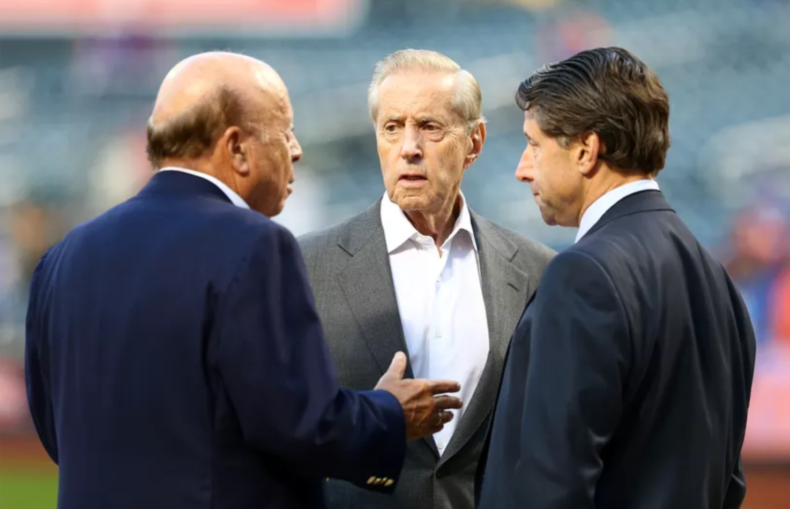
Mike Puma of the New York Post reported last week that former general manager Sandy Alderson’s successor will likely not be a “young, analytics-driven” type of person that owner Fred Wilpon would have “difficulty connecting with.”
The Mets are en route to their second losing season in as many years, and eighth in their last 10 years.
According to Puma, the belief within the front office is that the Mets became “too analytically driven” under Alderson’s regime and will now look towards a more traditional baseball approach.
Let me tell you why this is asinine.
First and foremost, it’s almost comical that in the minds of the Mets’ brain trust, analytics are to blame for the Mets struggles of late, when their entire team minus a few fortunate souls has been decimated by injuries this year, and practically every year for as long as I can remember.
In fact, since 2010, the Mets have ranked sixth in games players missed because of injury, according to James Wagner of the New York Times, via ManGamesLost.com. That’s not even including this year.
Secondly, I’m pretty in the dark over how much emphasis the Mets were really putting on analytics in the first place. They currently have only two, yes you read that correctly, two members comprising their analytics department.
While the Mets who have a small analytics department, to begin with, are trending towards a more basic approach, a quick Google search shows how important it’s becoming in regards to the game and how many more teams are bringing analytics departments to their front office.
If you don’t think putting emphasis on analytics works, look at the Houston Astros, who are perhaps the most analytically savvy team in the game. They just won the most recent World Series.
There’s nothing wrong with using the eye test when looking at a player, but it shouldn’t be the only factor in scouting them. That’s why these numbers exist and why they have been proven to work.
The Mets’ problems run far deeper than just numbers.
This winter they doled out nearly $90 million to free agents, none of which have particularly worked out, and none of which were all that savvy.
Apart from winning 18 games last year, Jason Vargas was a disaster in the second half and his numbers prove it. Jay Bruce had a strong season in 2017 where he hit over 30 home runs, but he was a square peg in a round hole defensively and has created a logjam in the outfield the next two seasons.
Jose Reyes and Adrian Gonzalez were aging veterans while Anthony Swarzak had completed his first strong year ever as a reliever in 2017.
Apart from Todd Frazier, who has gotten on-base at a high clip most of his career and most specifically last year, none of these signings were at all smart or groundbreaking. Mostly, they were just older players who at one time or another were sexy names.
Instead of denying analytics, the Mets should educate themselves more on them and why they’re good and put that information in cohesion with the eye test or whatever they desire, and start building a strong team on and off the field to become a contender.
Analytics has become increasingly more valuable in regards to scouting, and while the Mets farm system isn’t in the cellar anymore, it could be a lot better as a whole.
Apart from that, they need to do something to focus on how to combat injuries instead of just putting a figurative Band-Aid on the issue. Imagine if just for once we had a healthy season instead of having to use Ty Kelly in the outfield?
At the end of the day, the Mets problems run far deeper than analytics.
Nobody disagrees that changes need to be made, but to pin it all on numbers is silly and just a cop out to avoid the real issues.
Spend money on free agents more wisely, don’t be afraid to spend, invest in bolstering your scouting and replenish your farm system and find ways to keep your team more healthy.















